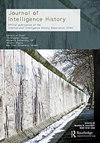Order and chaos: the CIA’s HYDRA database and the dawn of the information age
引用次数: 1
Abstract
ABSTRACT In the summer of 1967, with antiwar and civil rights protests dominating the news, U.S. president Lyndon B. Johnson tasked law enforcement and intelligence agencies with investigating links between domestic civil unrest and foreign governments, particularly the Soviet Union. One of the outcomes was HYDRA, a CIA-led counter-intelligence database intended to leverage novel digital information technology to uncover previously unseen links to foreign threats. The paper argues that conceptualizing HYDRA as technological system which mobilized resources from across the federal government as well as from foreign partner agencies, allows us to raise larger questions about the impact of information technology on intelligence work: How did computer technology change everyday practices within intelligence and security services? Did public opposition to computerization efforts contribute to a critical discourse within Western societies associating security databases with attacks on freedom and democracy? Did the use of computers contribute to a new culture of security that shifted attention from great power rivalries to technological, networked or transnational threats which became characteristic of the Information Age?秩序与混乱:中央情报局的九头蛇数据库与信息时代的黎明
1967年夏天,反战和民权抗议占据了新闻头条,美国总统林登·约翰逊责成执法部门和情报机构调查国内动乱与外国政府,特别是苏联之间的联系。其中一个成果是HYDRA,这是一个由中央情报局领导的反情报数据库,旨在利用新的数字信息技术来发现以前看不见的与外国威胁的联系。论文认为,将HYDRA概念化为一种技术系统,它动员了来自整个联邦政府以及外国合作机构的资源,这使我们能够提出有关信息技术对情报工作影响的更大问题:计算机技术如何改变情报和安全部门的日常实践?公众对计算机化努力的反对是否促成了西方社会将安全数据库与对自由和民主的攻击联系在一起的批评性话语?计算机的使用是否促成了一种新的安全文化,将人们的注意力从大国之间的竞争转移到成为信息时代特征的技术、网络或跨国威胁上?
本文章由计算机程序翻译,如有差异,请以英文原文为准。
求助全文
约1分钟内获得全文
求助全文
来源期刊

Journal of Intelligence History
Arts and Humanities-History
CiteScore
0.50
自引率
0.00%
发文量
21
期刊介绍:
The Journal of Intelligence History is the official publication of the International Intelligence History Association (IIHA). It is an international peer-reviewed journal that aims to provide a forum for original research on the history of intelligence services, activities and their wider historical, political and social contexts. The journal aims to publish scholarship on all aspects of the history of intelligence, across all continents, countries and periods of history. We encourage submissions across a wide range of topics, methodologies and approaches.
 求助内容:
求助内容: 应助结果提醒方式:
应助结果提醒方式:


